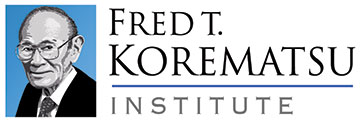* * * * *
* * * * *
* * * * *
* * * * *

* * * * *
* * * * *

* * * * *

* * * * *
FRED KOREMATSU DAY OF CIVIL LIBERTIES AND THE CONSTITUTION IN NEW JERSEY ON JANUARY 30 OF EACH YEAR IN REVIEW
A JOINT RESOLUTION designating January 30 of each year as Fred 1 Korematsu Day of Civil Liberties and the Constitution in New Jersey.
WHEREAS, Fred Korematsu was born on January 30, 1919, in Oakland, California to Japanese immigrants; and
WHEREAS, Fred Korematsu was denied eligibility twice to serve in the United States military because his selective service classification was changed to enemy alien following the Japanese surprise attack on Pearl Harbor during World War II, even though Fred Korematsu was a United States citizen; and
WHEREAS, After Fred Korematsu’s rejection from the United States military, he attended the Master School of Welding and worked as a shipyard welder in Oakland, California until his employment was terminated due to his Japanese ancestry; and
WHEREAS, In an attempt to address the nation’s wartime fear of a subsequent attack by Japan, President Franklin D. Roosevelt issued Executive Order 9066, which empowered the United States’ Secretary of War to establish designated military areas for the evacuation of people viewed as security threats; and
WHEREAS, In 1942, President Franklin D. Roosevelt authorized Civilian Exclusion Order No. 34 which imposed strict curfew regulations and required 120,000 permanent residents and American citizens of Japanese descent to forcibly leave their homes \ to be imprisoned in American incarceration camps; and
WHEREAS, Fred Korematsu refused to comply with Civilian Exclusion Order No. 34 because he believed the order violated the basic freedoms guaranteed to him by the United States Constitution; and
WHEREAS, On May 30, 1942, Fred Korematsu was arrested and found guilty of violating Civilian Exclusion Order No. 34; a charge which 30 he appealed to the United States Supreme Court; and
WHEREAS, In 1944, the Supreme Court, upheld the conviction of Fred Korematsu, by a vote of six to three, claiming that his incarceration was justified and not caused by racism; and
WHEREAS, Following World War II and the release of all Japanese- Americans from incarceration camps, Fred Korematsu attempted to resume an ordinary American life, but the conviction hampered his ability to gain employment; and
WHEREAS, In 1982, with newly discovered government intelligence reports absolving Japanese-Americans of any wrongdoing during World War II, Fred Korematsu petitioned to have the conviction overturned; and
WHEREAS, Fred Korematsu’s conviction was overturned in 1983; a decision that influenced Congress’ passage of the “Civil Liberties Act of 1988”, which recognized that a grave injustice was done by the forced relocation and incarceration of Japanese-American citizens during World War II; and
WHEREAS, In 1998, Fred Korematsu was awarded the Presidential Medal of Freedom, the nation’s highest civilian honor, from President Bill Clinton; and
WHEREAS, Until his death in 2005, Fred Korematsu continued to advocate for civil liberties and justice by speaking out against racial discrimination at various colleges, law schools, and other organizations; now, therefore,
BE IT RESOLVED by the Senate and General Assembly of the State of New Jersey:
1. January 30 of each year is designated Fred Korematsu Day 12 of Civil Liberties and the Constitution to educate about and honor the life of Fred Korematsu, his perseverance, and his determination to advocate for the civil liberties of all Americans.
2. The Governor is respectfully requested to annually issue a proclamation calling upon public officials, private organizations, and all citizens of this State to observe “Fred Korematsu Day of Civil Liberties and the Constitution” with appropriate events and 20 activities.
3. This joint resolution shall take effect immediately.
STATEMENT
This joint resolution designates January 30 of each year as Fred Korematsu Day of Civil Liberties and the Constitution in New Jersey. Fred Korematsu overcame racial discrimination in his youth and racial prejudice during World War II, which ultimately left him personally incarcerated and later sent Mr. Korematsu and his family to an American incarceration camp in this country. Fred Korematsu maintained his innocence pleading his case all the way up to the United States Supreme Court.
Even after the Supreme Court upheld his conviction, Fred Korematsu fought ceaselessly to advocate for the importance of preserving the constitutionally mandated guarantee of liberty for all Americans. Following Fred Korematsu’s eventual exoneration in 1983, he has continued to advocate for civil liberties by speaking out against racial injustices and cautioning the federal government against repeating mistakes of the past that singled out individuals based on ethnicity, race, nationality, or religion. His daughter, Karen Korematsu, continues his legacy with the establishment of the Fred T. Korematsu Institute.
Fred Korematsu’s strength, courage, and legacy should be remembered and honored among all citizens and residents of this State.








